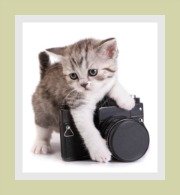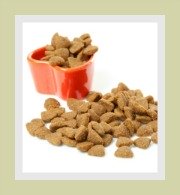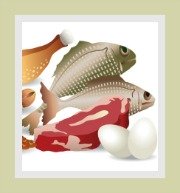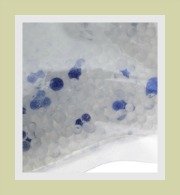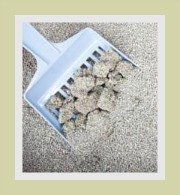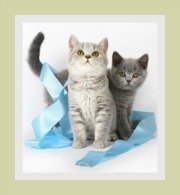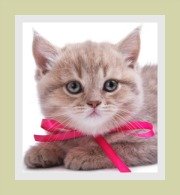Cat Vitamins
Essential to Cat Health
Cat vitamins and minerals are nutrients required in a cat's diet, but should be in measured and small amounts.
Vitamins are organic substances made by animals and plants and consumed by mammals.
There are 13 vitamins that need to be obtained from the diet and they are divided into water and fat soluble vitamins. Cats make their own Vitamin C from other components in their diet.
Minerals are inorganic elements found in water and soil; they are absorbed by plants and then consumed by animals.
water soluble cat vitamins
Water soluble vitamins are retained for a short time and then excreted via the kidneys.
vitamin |
function |
|
Thiamine - B1 |
B1 is required for normal nerve function, carbohydrate metabolism and the production of energy. |
|
Riboflavin - B2 |
B2 assists with red blood cell formation and the metabolism of amino acids and fats. |
|
Niacin - B3 |
B3 promotes a healthy skin and assists with the release of energy from fats, proteins and carbohydrates. |
|
Pantothenic acid - B5 |
B5 is required for the synthesis of many substances and the release
of energy from foods. |
|
Pyridoxine - B6 |
B6 is essential for the metabolism of proteins, fats and carbohydrates; for the healthy functioning of the nervous system and the synthesis of hormones. |
|
Folic acid - B9 |
B9
is essential for the synthesis of DNA and proteins and for the
formation of red blood cells. |
|
Cyanocobalamin - B12 |
B12
helps breakdown fatty acids, maintains a healthy nervous system
and assists in production of red blood cells. Aids in the synthesis of
hemoglobin and the metabolism of proteins. |
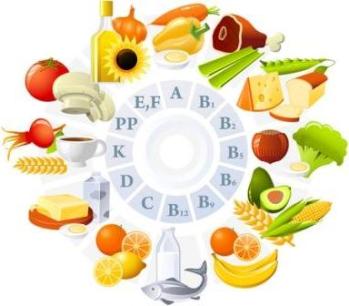
fat soluble cat vitamins
Fat soluble vitamins, are retained in the body and can have serious side effects if too much is ingested:
vitamin |
function |
|
Retinol - Vit A |
Vitamin A is needed for healthy skin, hair, new cell growth and vision. If
excess Vit A is given to cats, it can result in calcification of soft
tissue, painful joints and malformation of the skeleton, bone growths
and liver problems |
|
Calciferol - Vit D |
Vitamin D aids in the metabolism of phosphorus and calcium and the absorption of calcium for healthy bones and teeth. Humans produce Vitamin D3 in their skins when exposed to sunlight, cats do not. Cats get Vit D from a carnivorous diet. In days gone by it was thought that cats produced Vit D in the sebum of their skins and received their intake during grooming - this is false. An overdose of Vit D can cause increased
calcium in the blood resulting in increased calcification of soft tissue
i.e. the heart and kidneys. |
|
Tocopherol - Vit E |
Vitamin
E acts as an antioxidant and protects red blood cells. It prevents
the destruction of vitamin A and C. |
|
Vitamin K |
Vitamin
K is essential for blood clotting and the synthesis of proteins. |
macro minerals
Minerals
are divided into the macro minerals and the trace elements
(micro-minerals). A cat receives minerals and trace elements in their
diet:
mineral |
function
|
|
Calcium |
Calcium is essential for nerve function, blood clotting, for strong
teeth and bones and muscle contraction. |
|
Potassium |
Potassium is an electrolyte required for the normal electrical activity of the heart, protein synthesis and the proper functioning of nerve impulses and muscle contraction. |
|
Sodium |
Sodium
is needed to regulate blood pressure and is essential for the proper
functioning of nerves and muscles. |
|
Magnesium |
Magnesium
assists with the conversion of energy from food, assists in building
strong bones, cell repair, healthy teeth and bones and regulating body
temperature. |
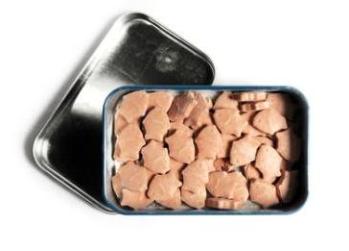
trace elements
|
Iron |
Iron
is needed for the formation red blood cells and hemoglobin which
carries oxygen to the cells and prevents anemia. |
|
Zinc |
Zinc assists the immune system and helps with the breakdown of
carbohydrates, proteins and fats. |
|
Selenium |
Selenium
is an antioxidant and is needed in small (but regular amounts) for a
healthy liver |
|
Manganese |
Manganese
assists with healthy teeth and bones, synthesizes fatty
acids, maintains a healthy nervous system, protects the body of free
radicals and helps the body utilize key nutrients. |
|
Copper |
Copper
and iron assist with the formation of red blood cells, healthy bones
and blood vessels, nerves and the immune system. |
|
Iodine |
Iodine is required for normal thyroid function and normal metabolism (i.e. the process of converting food to energy) |
It is clear that vitamins and minerals are important for the proper growth, development and regulation of all body functions.
Most well balanced, good quality cat foods contain adequate amounts of vitamins and minerals and supplementation is not required.
If you feel that your kitty requires cat vitamins, please consult your veterinarian first.
Top of cat vitamins
Return to cat nutrition
search our site
please like us
share our site
recommend on google
popular pages
